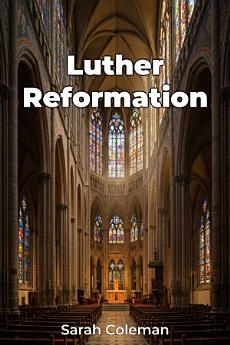Luther Reformation
O ovoj e-knjizi
The book begins by establishing the historical context of the late medieval Church, then delves into Luther's biography and theological breakthroughs. It further analyzes the spread of Luther's ideas through printing technology and the support of German princes seeking independence. By using primary sources like Luther's writings and papal bulls, the book provides a balanced and nuanced view of the Reformation, avoiding biased portrayals.
Finally, the book considers the long-term implications of the Reformation, including its influence on modern concepts of religious freedom and the separation of church and state. It adopts a scholarly yet accessible tone, making it valuable for both academic and general audiences interested in religious and European history. The book connects the Reformation to broader fields such as political science and sociology, enriching its narrative.








